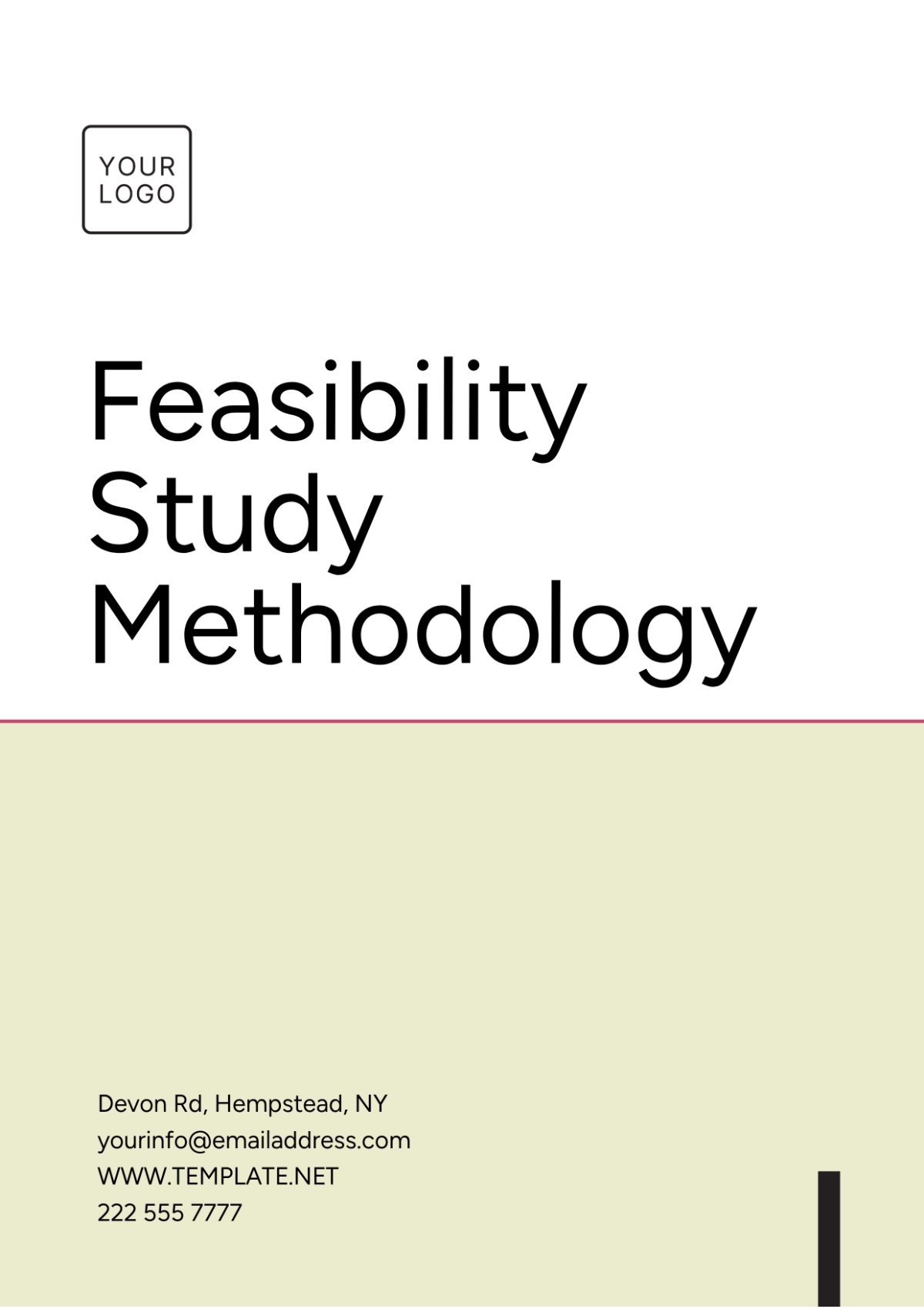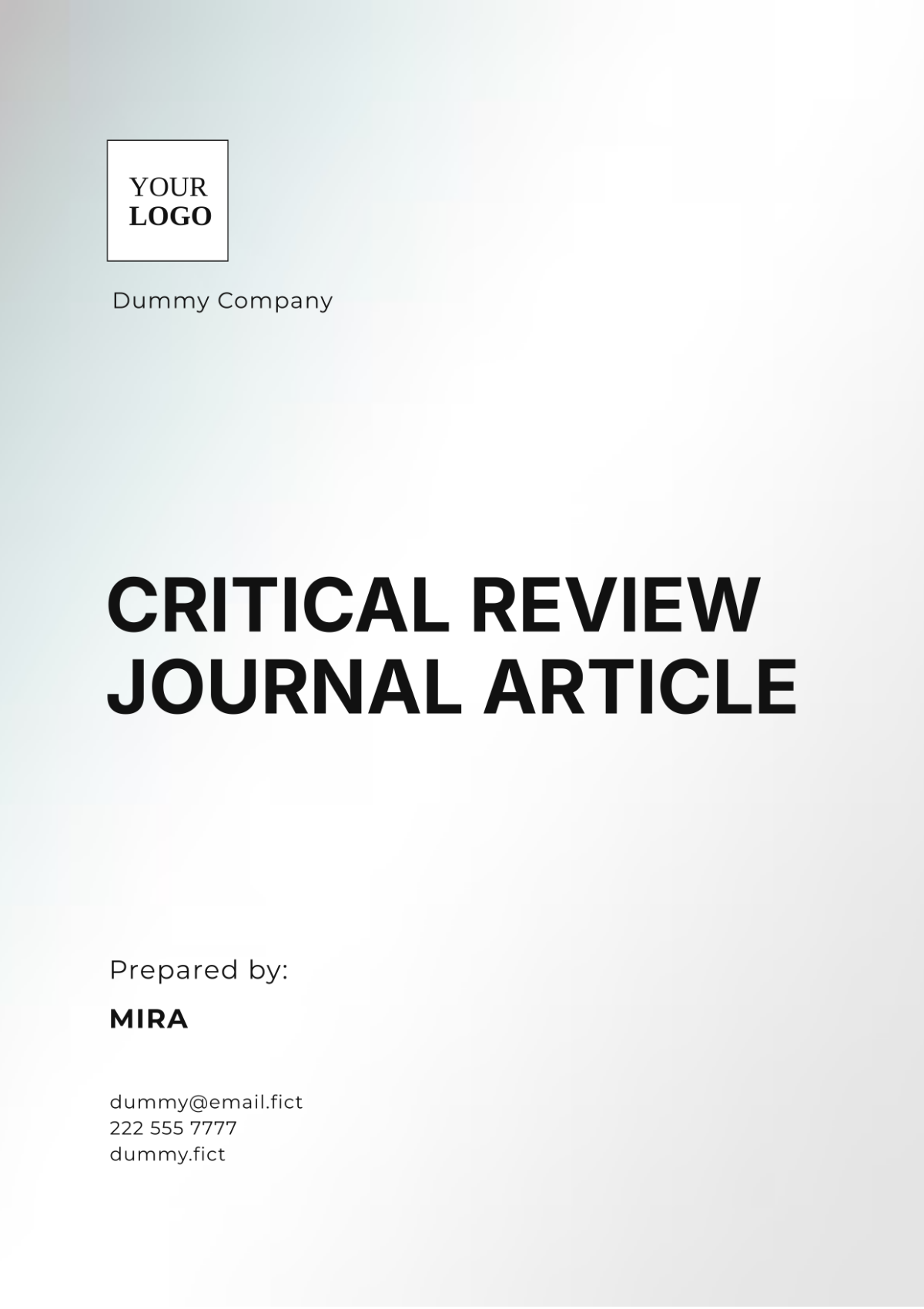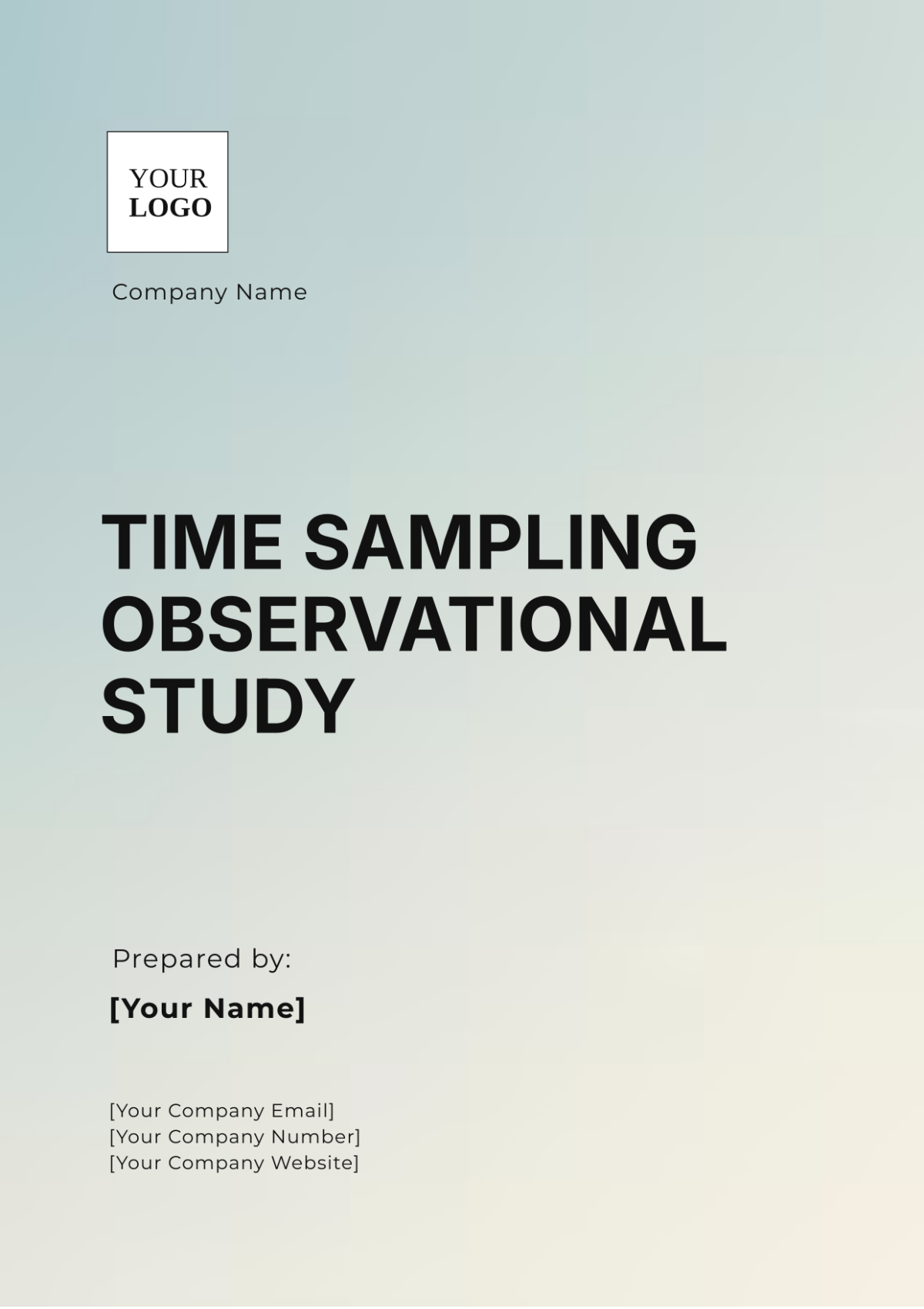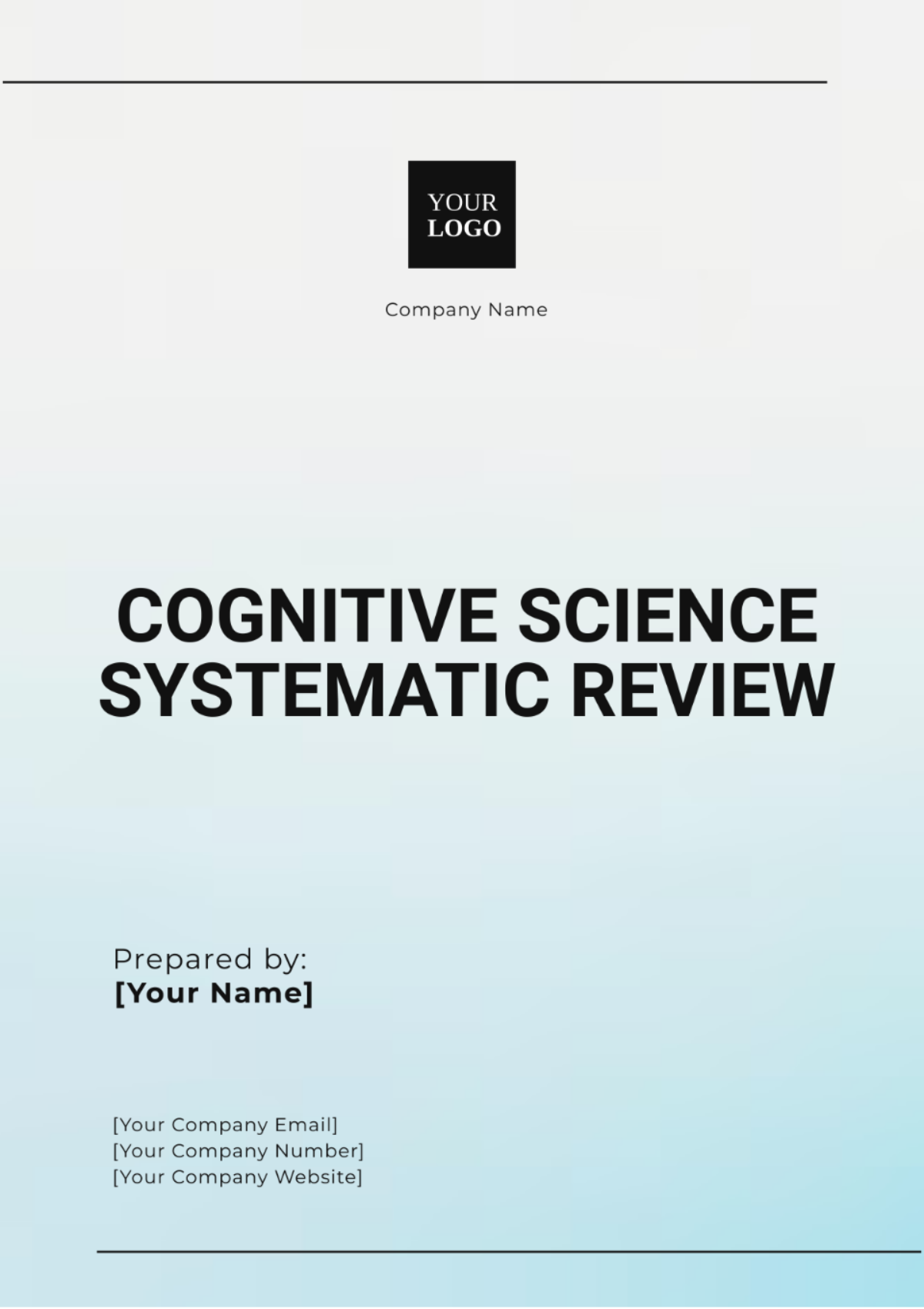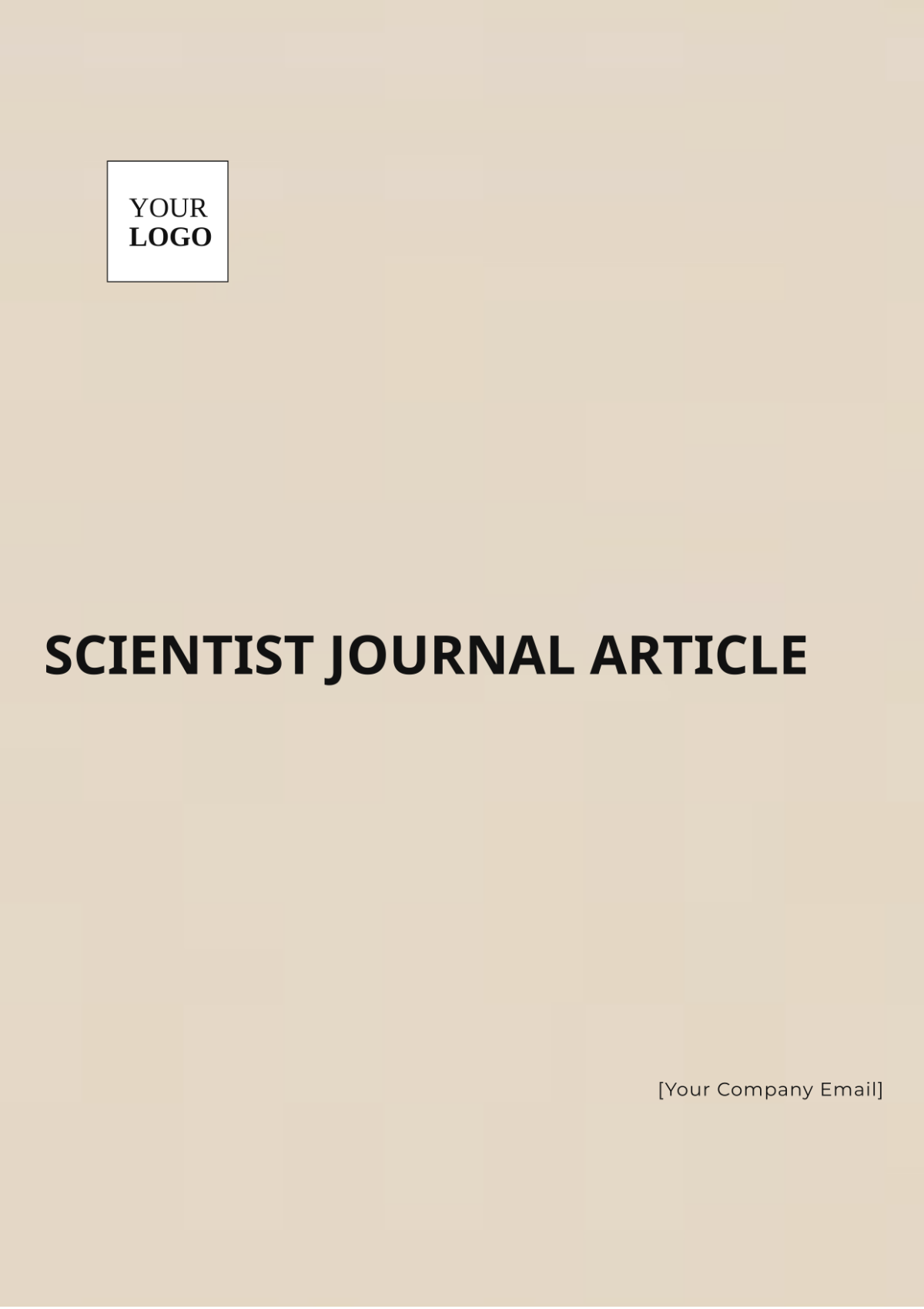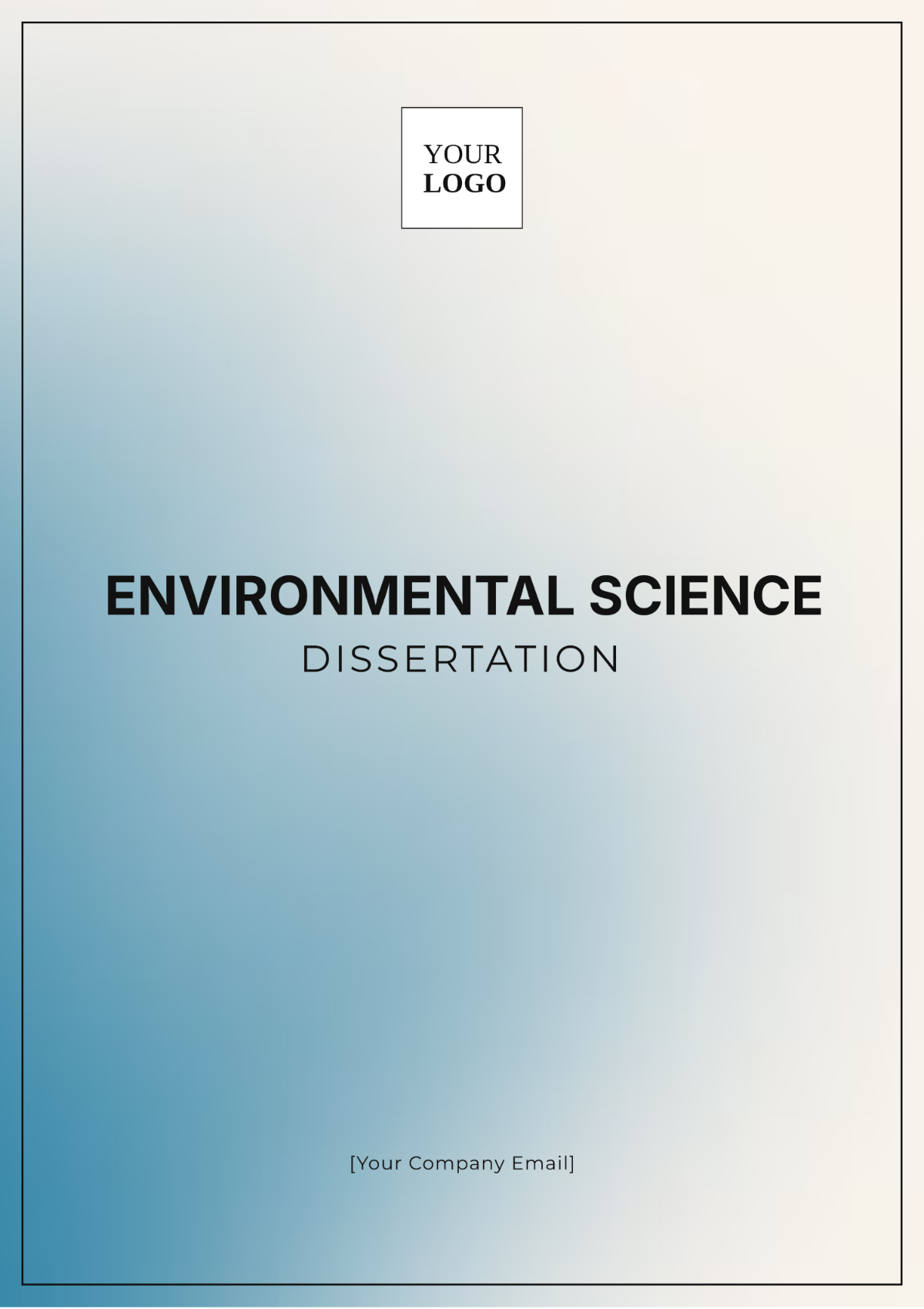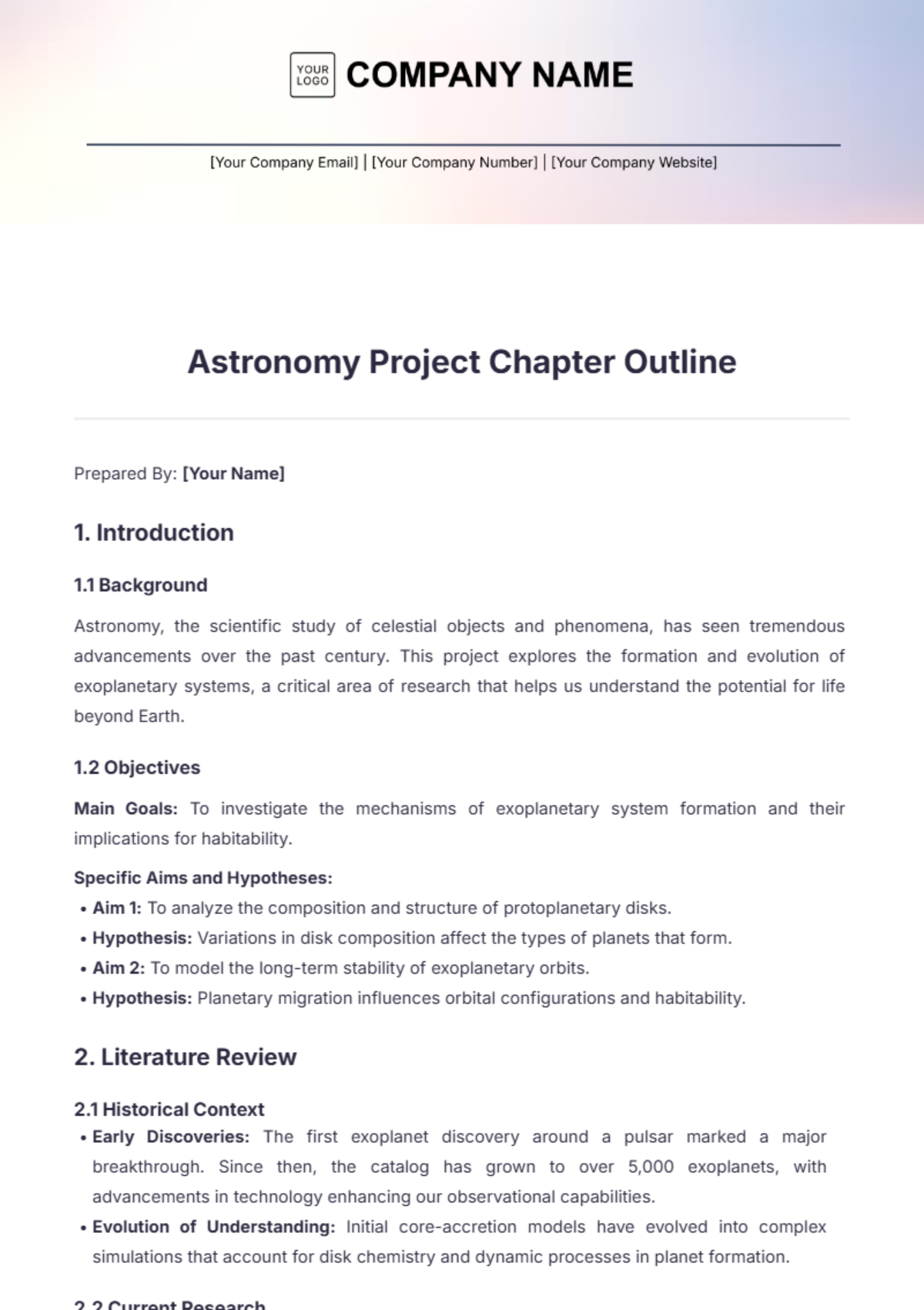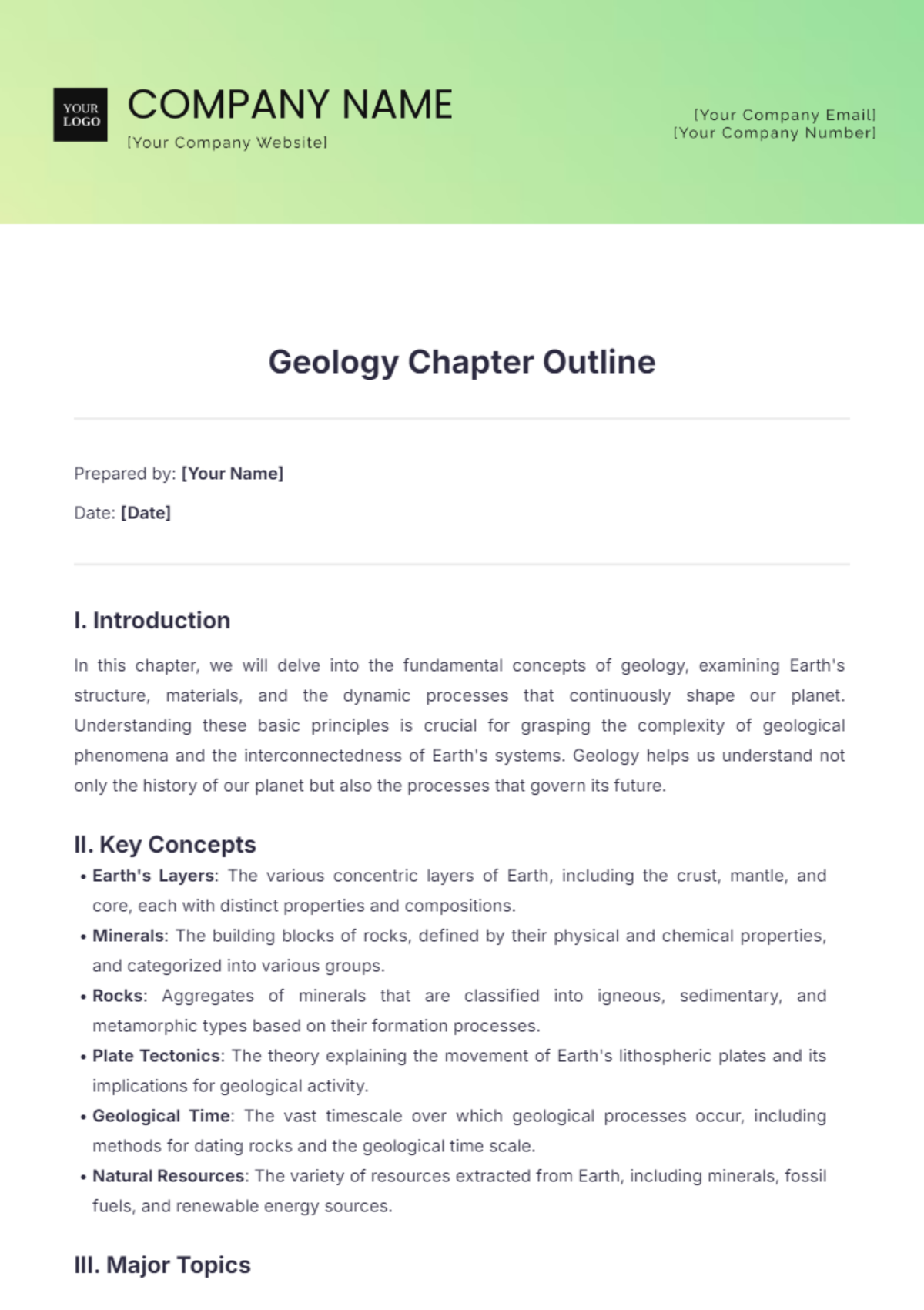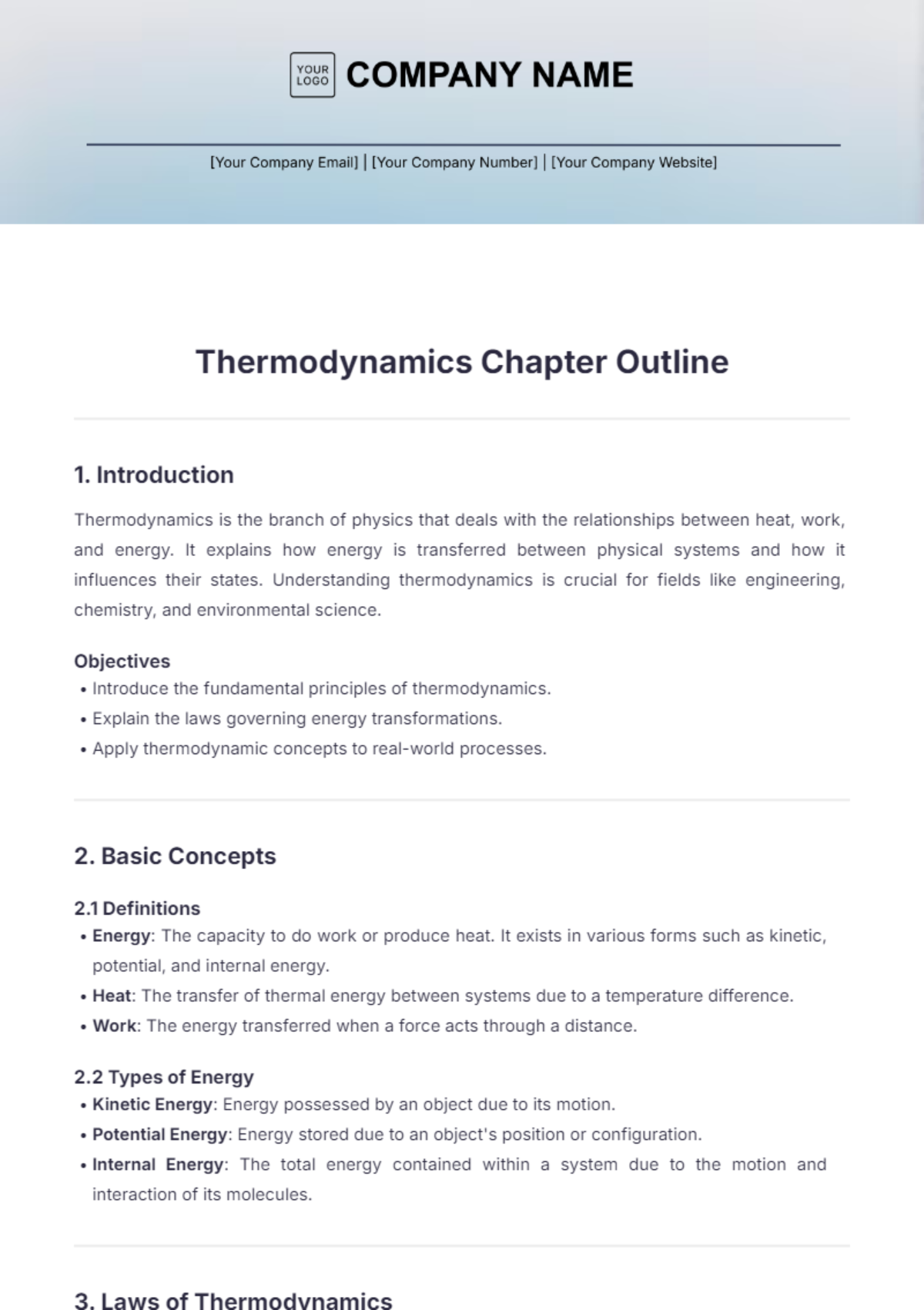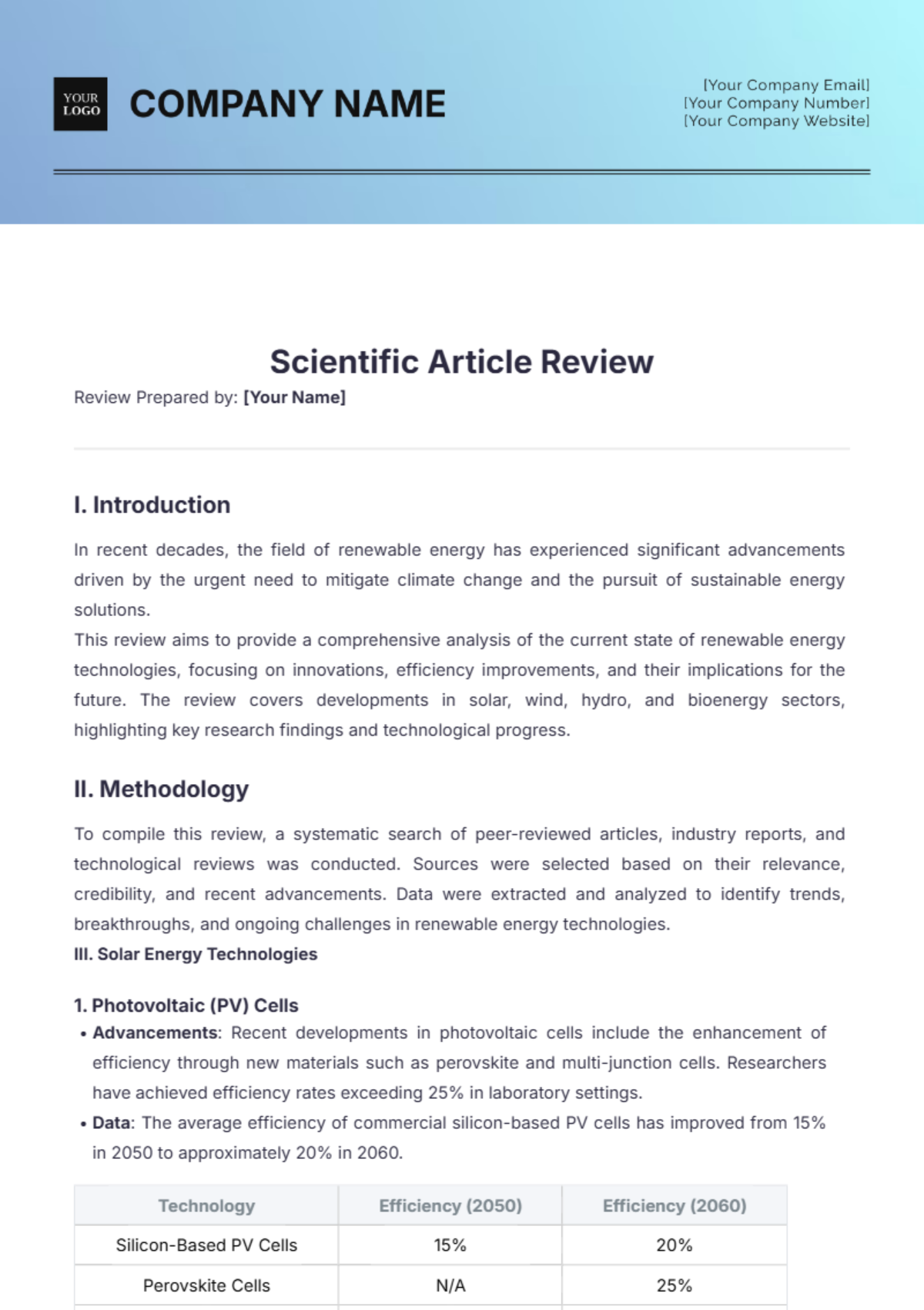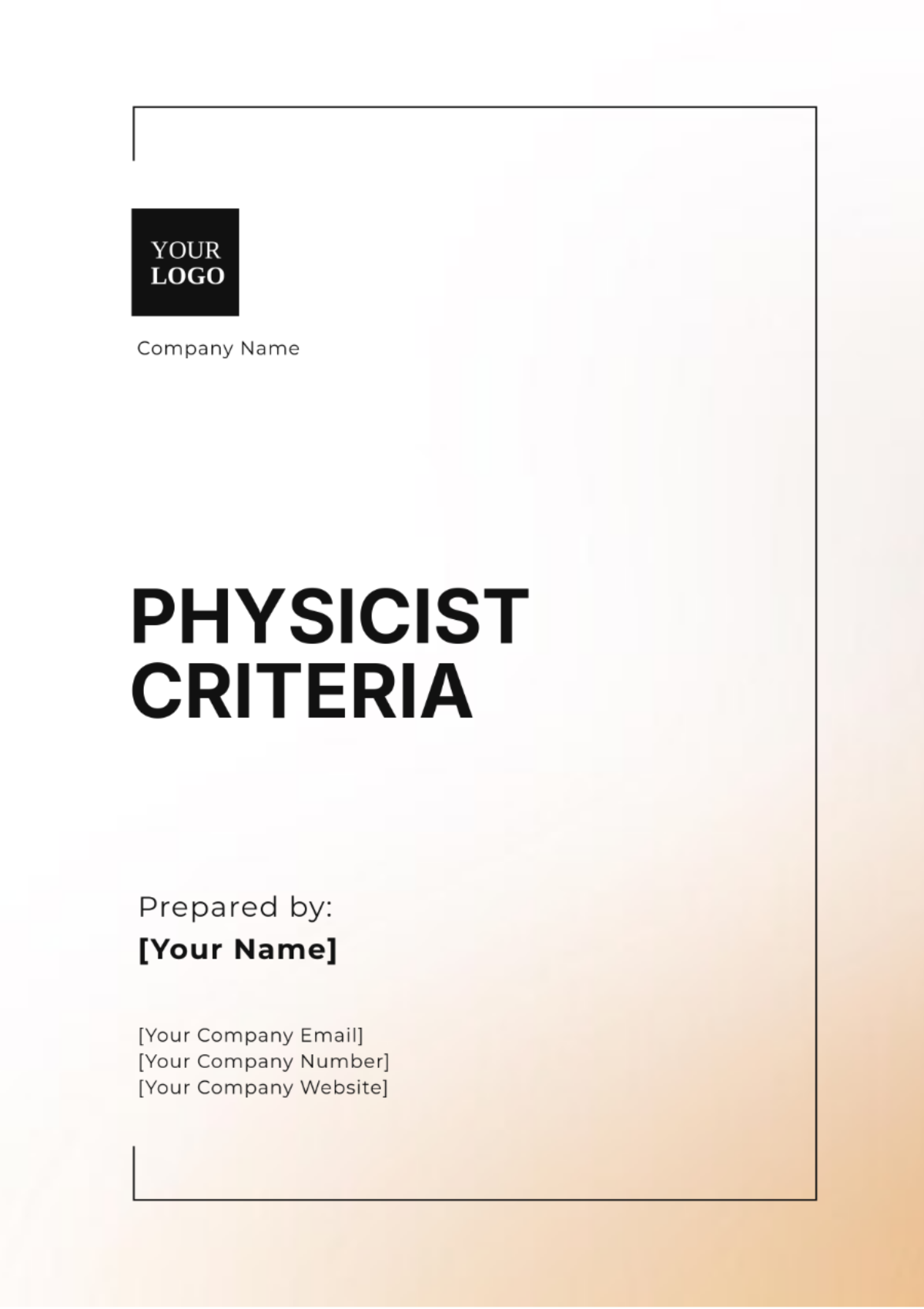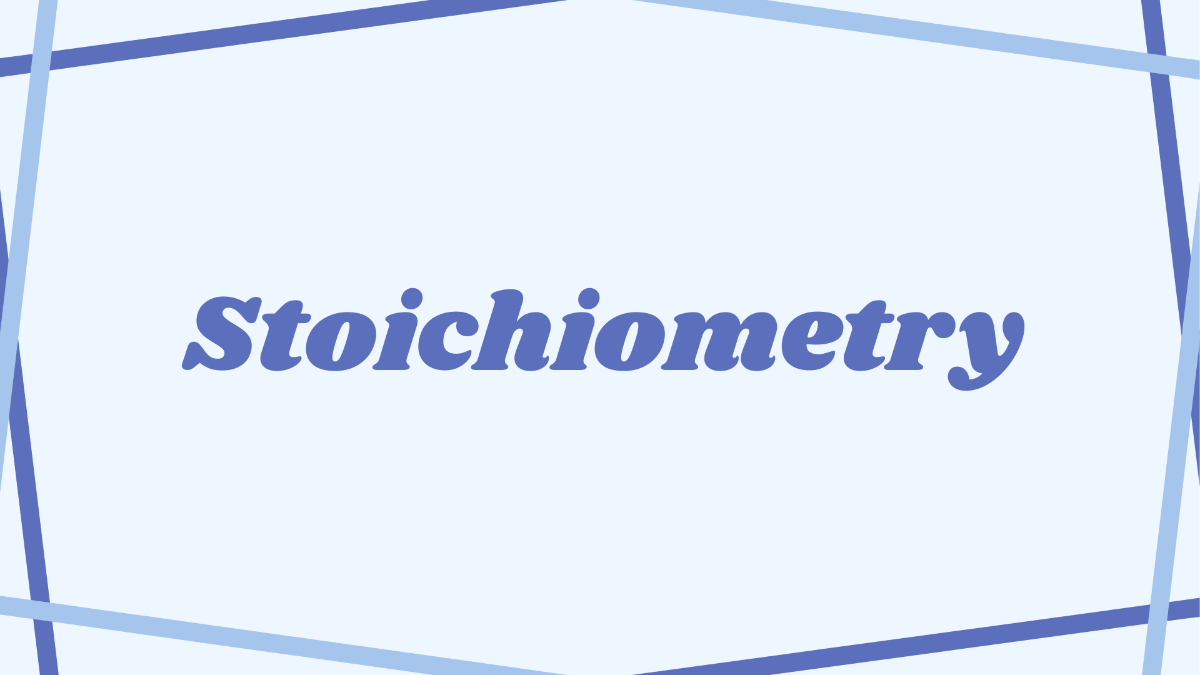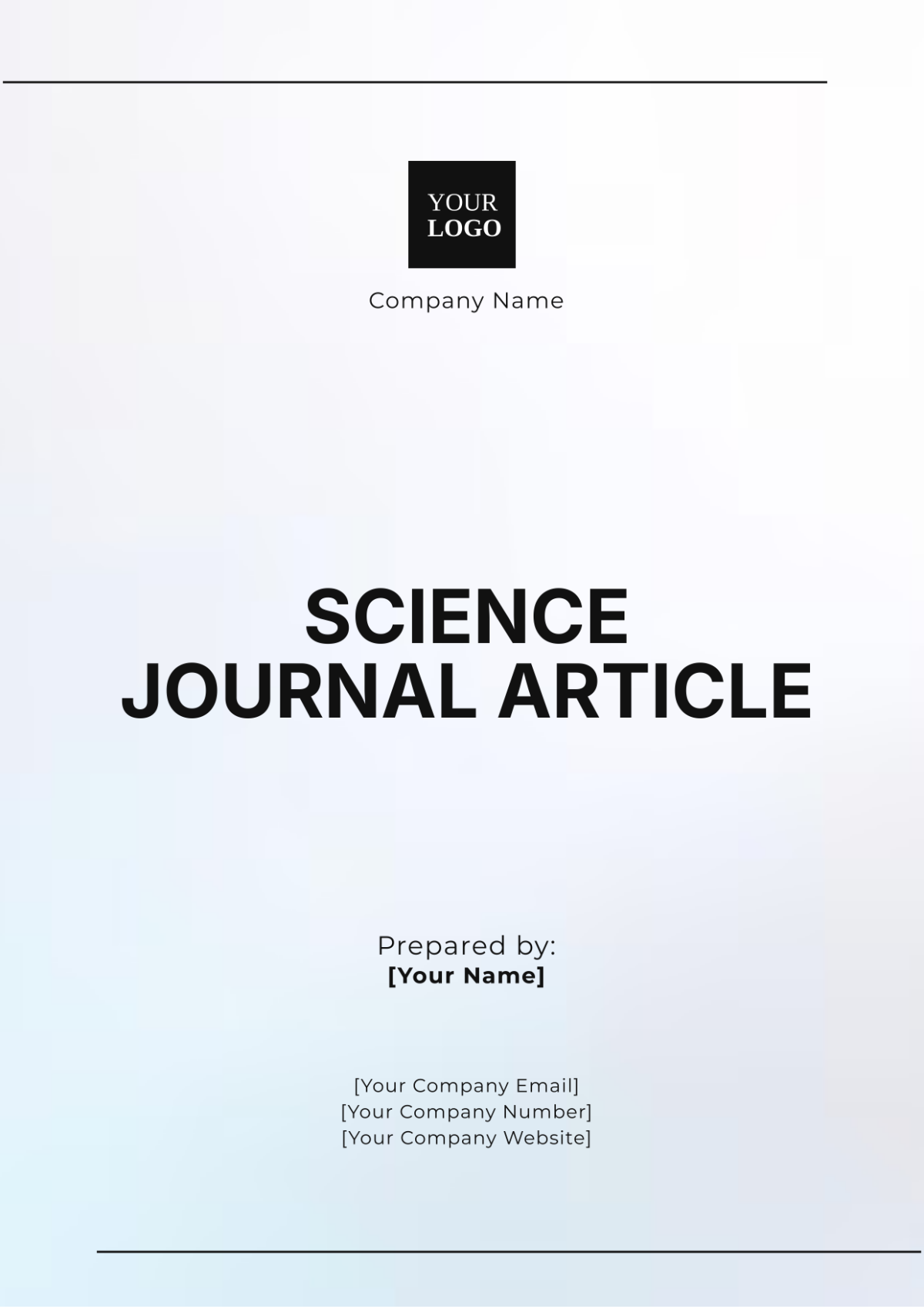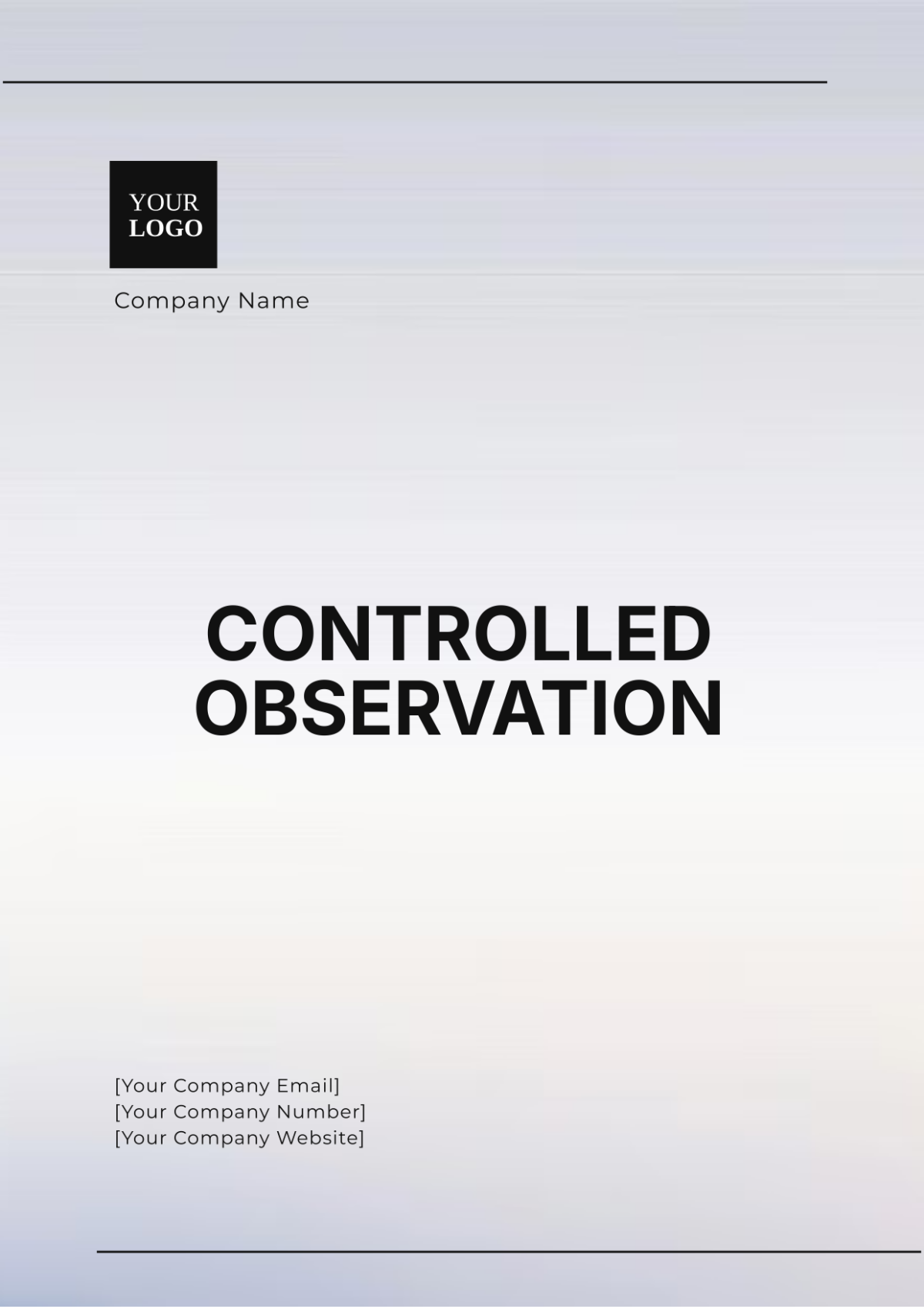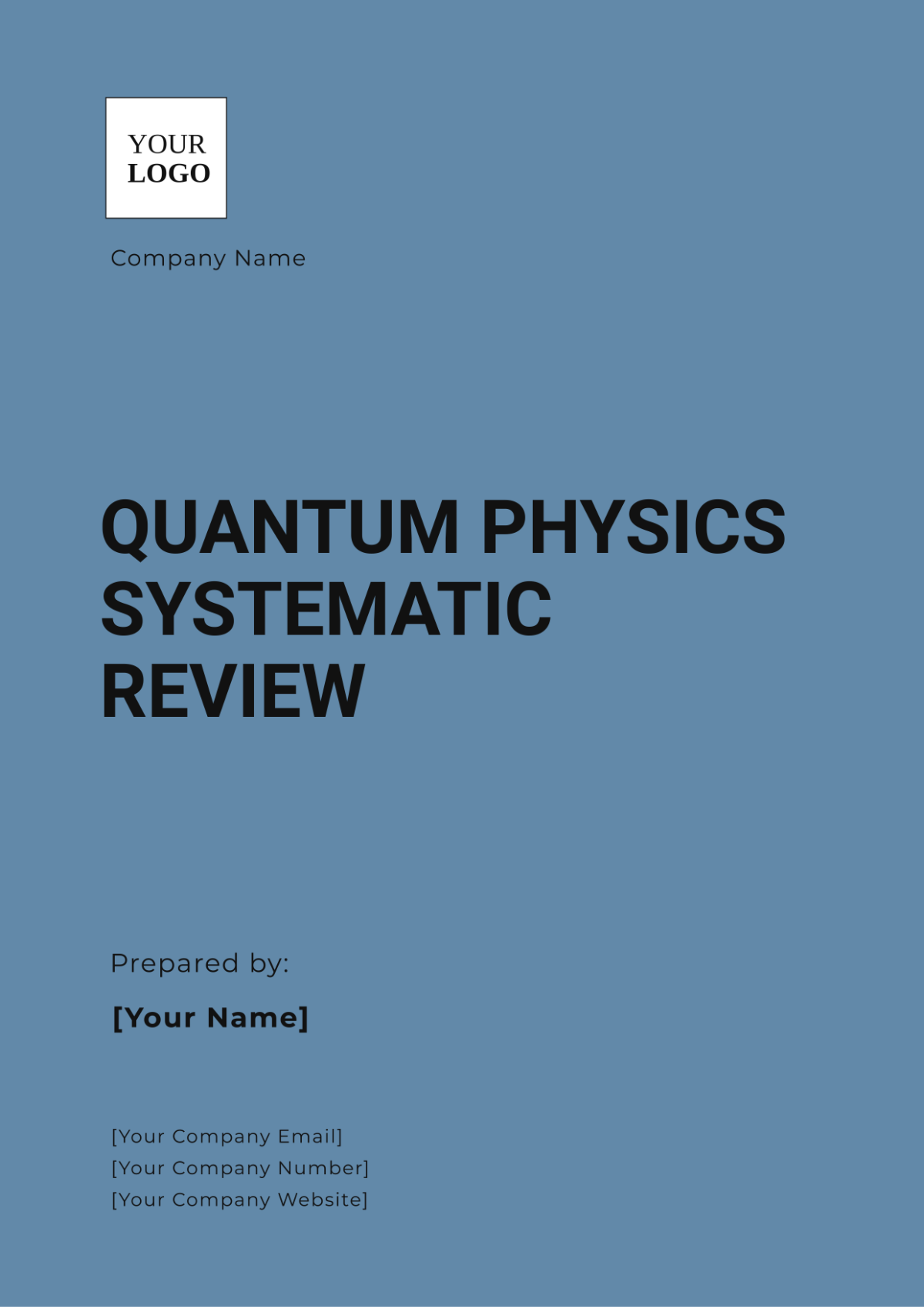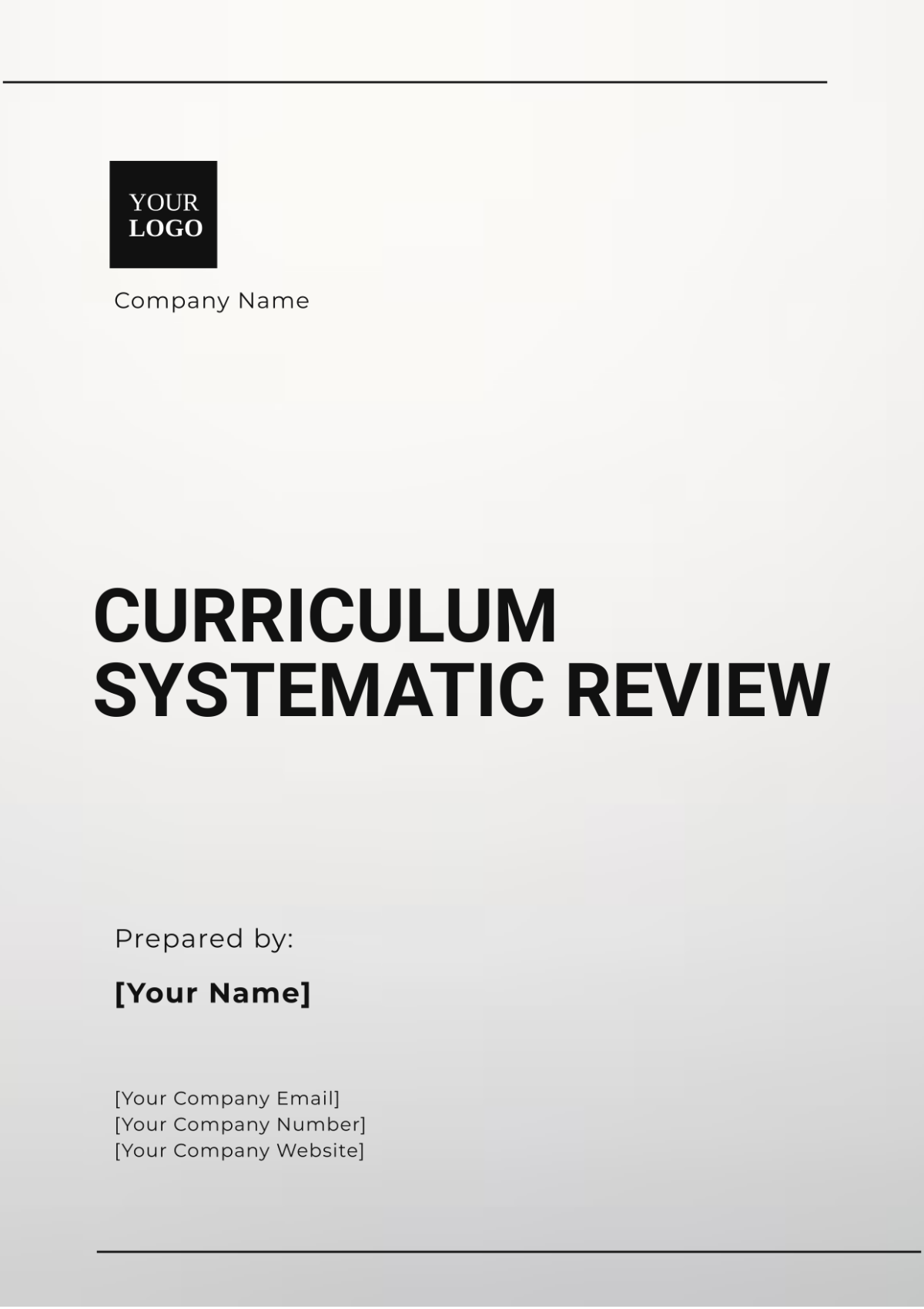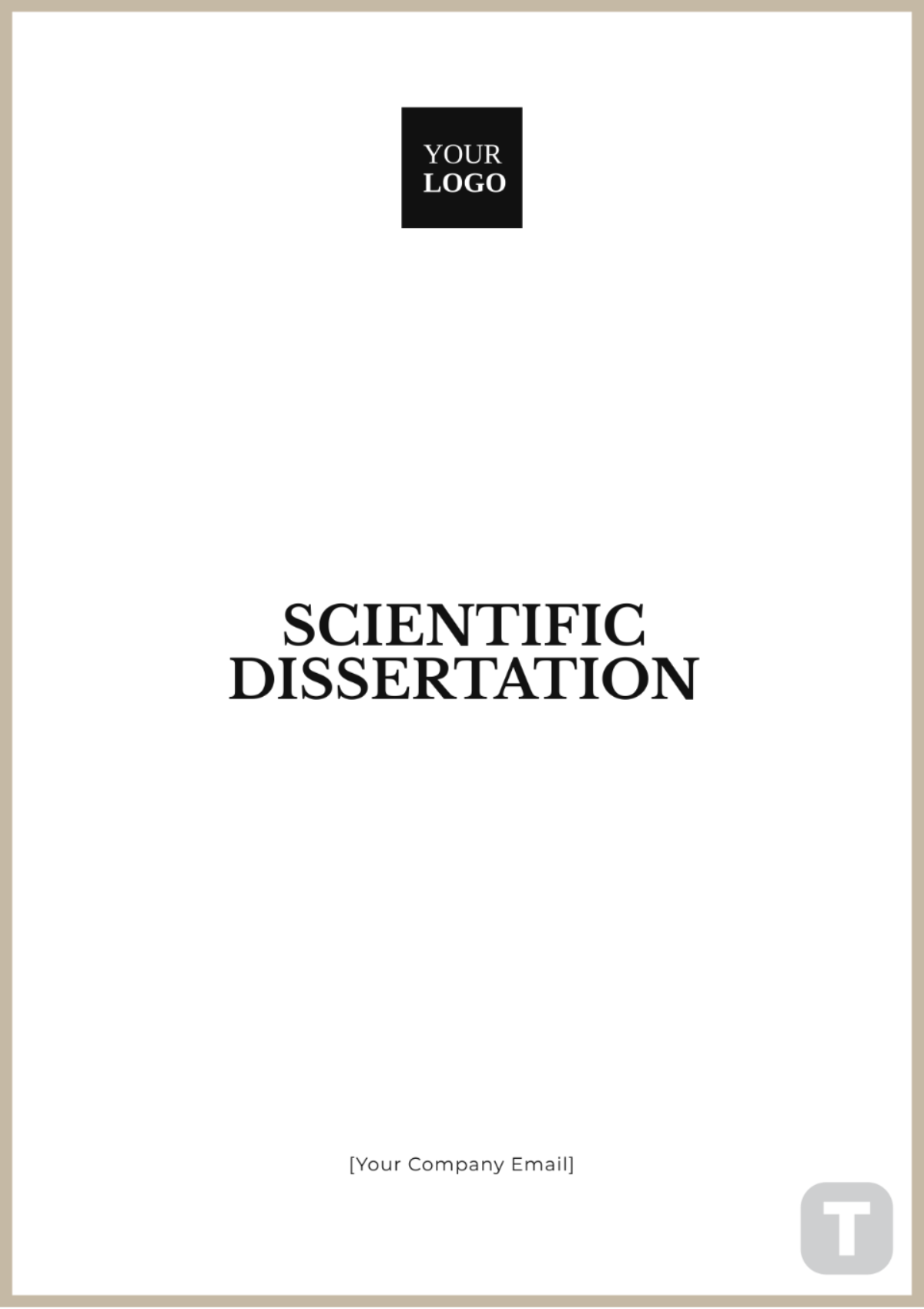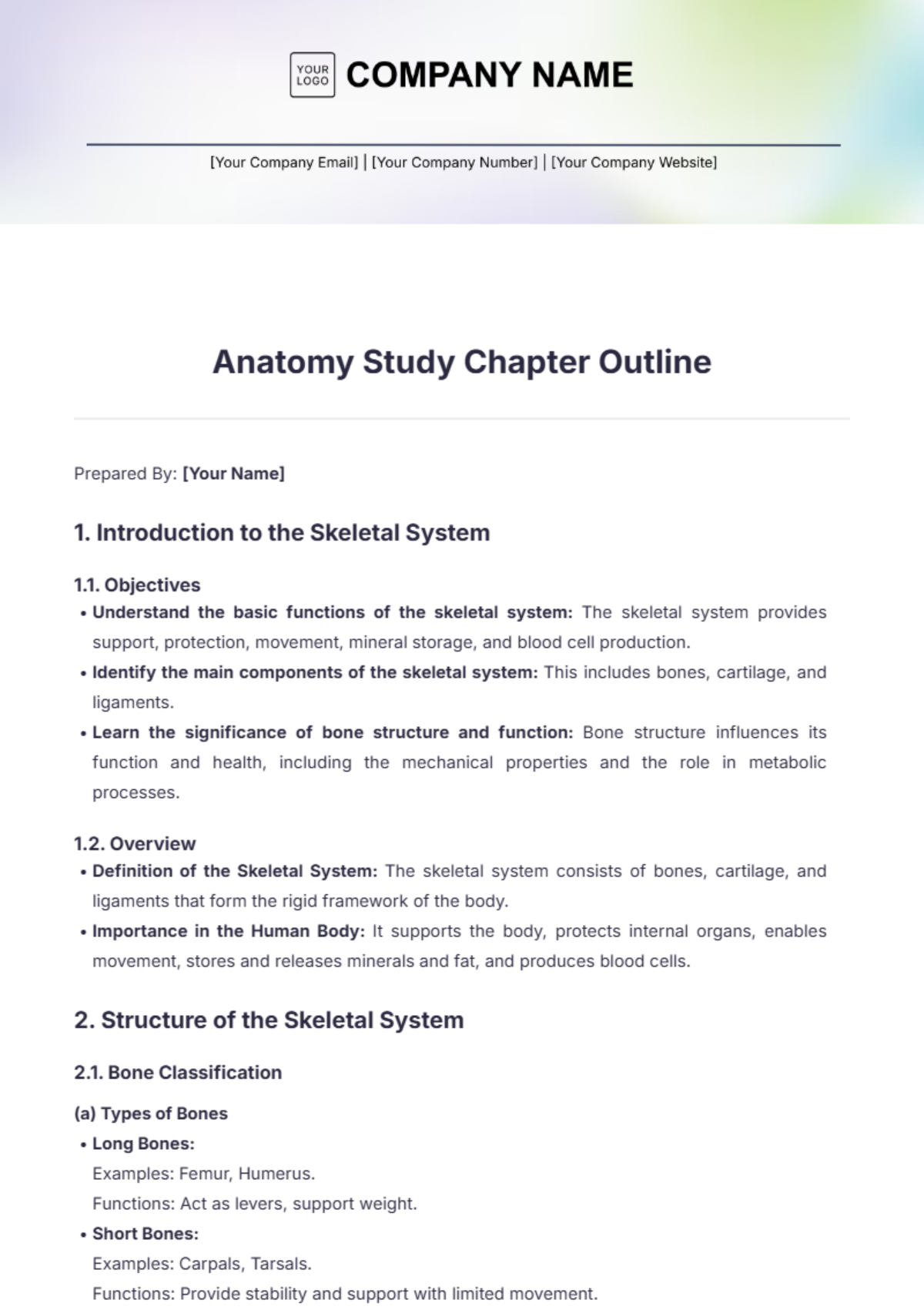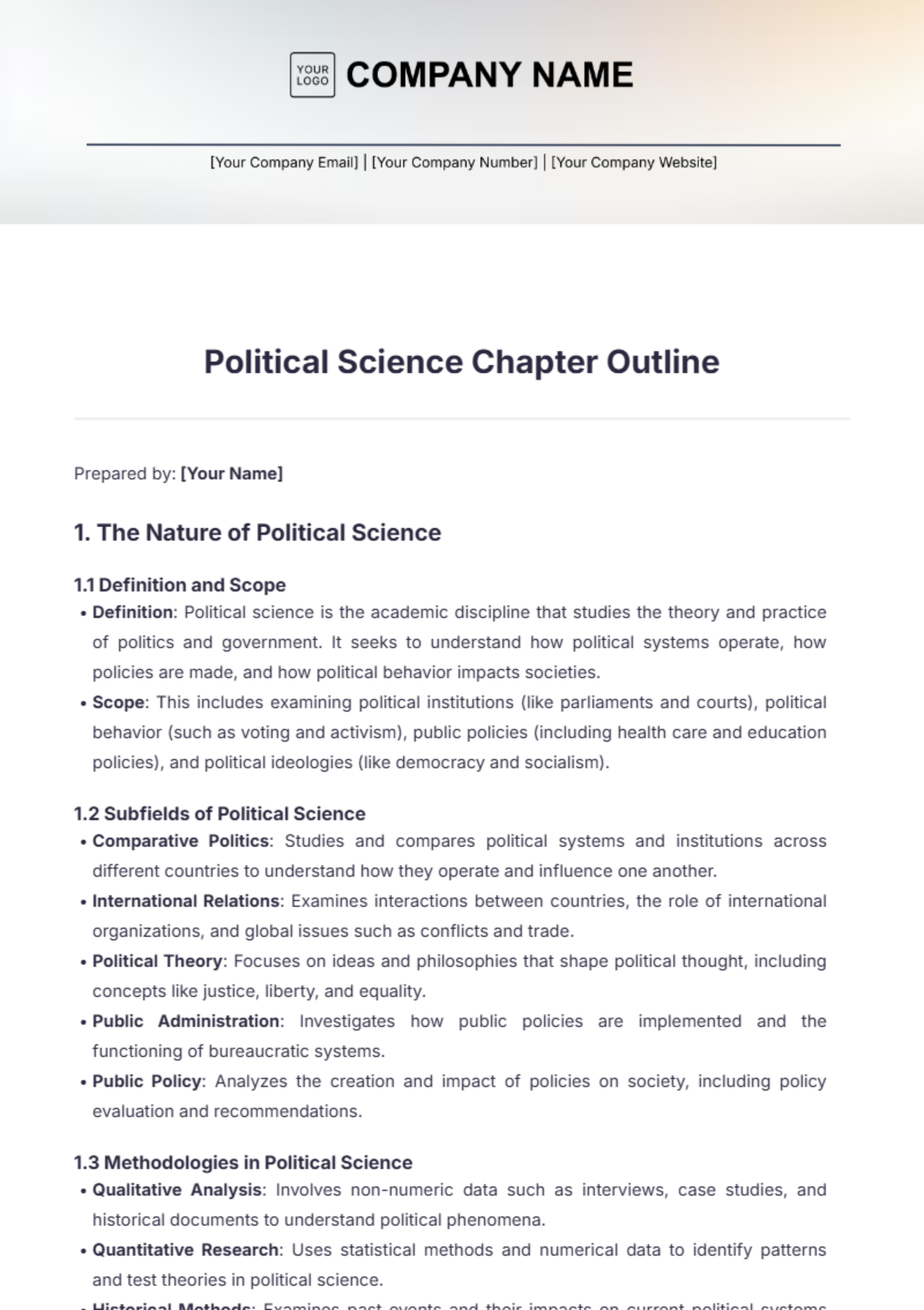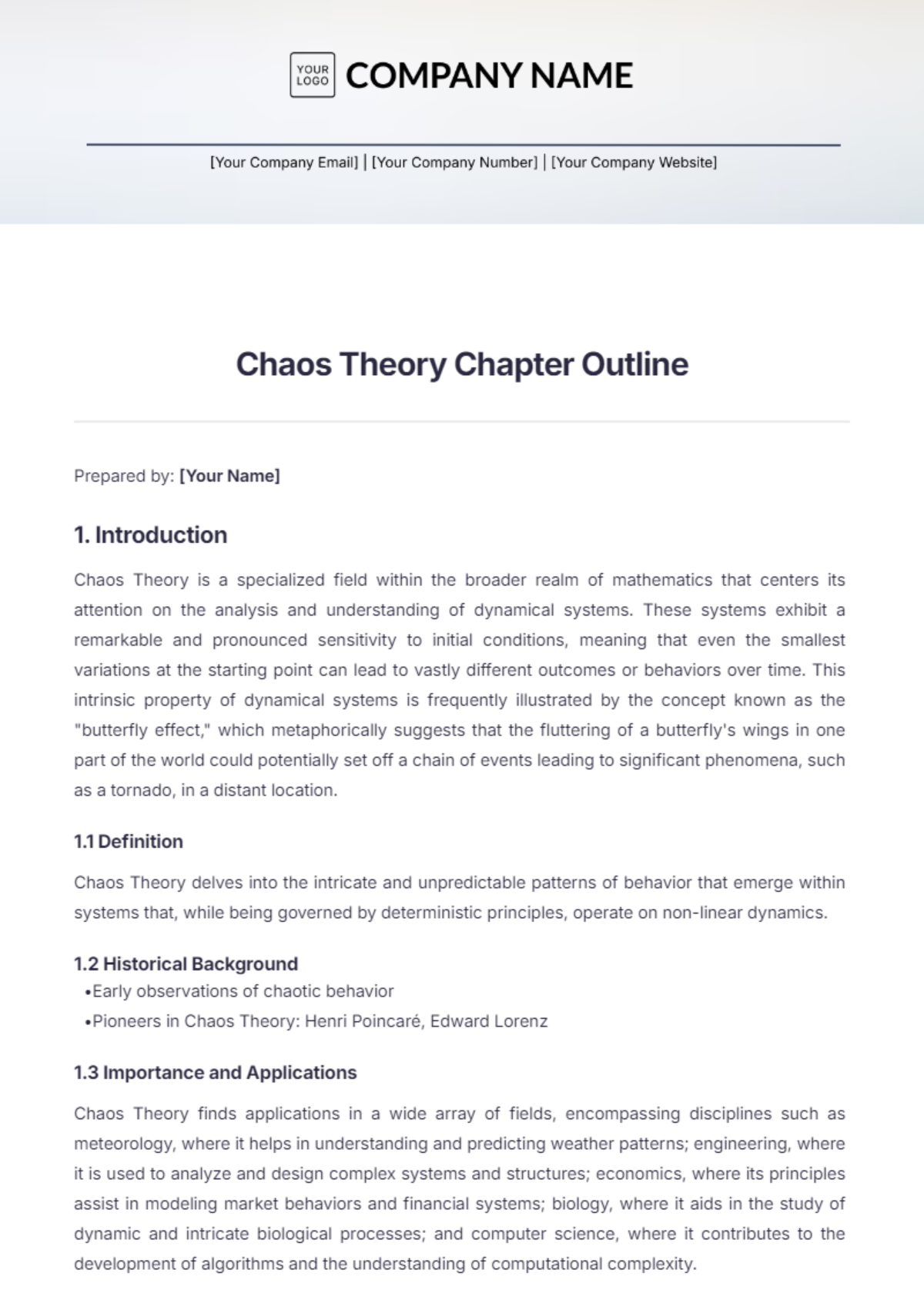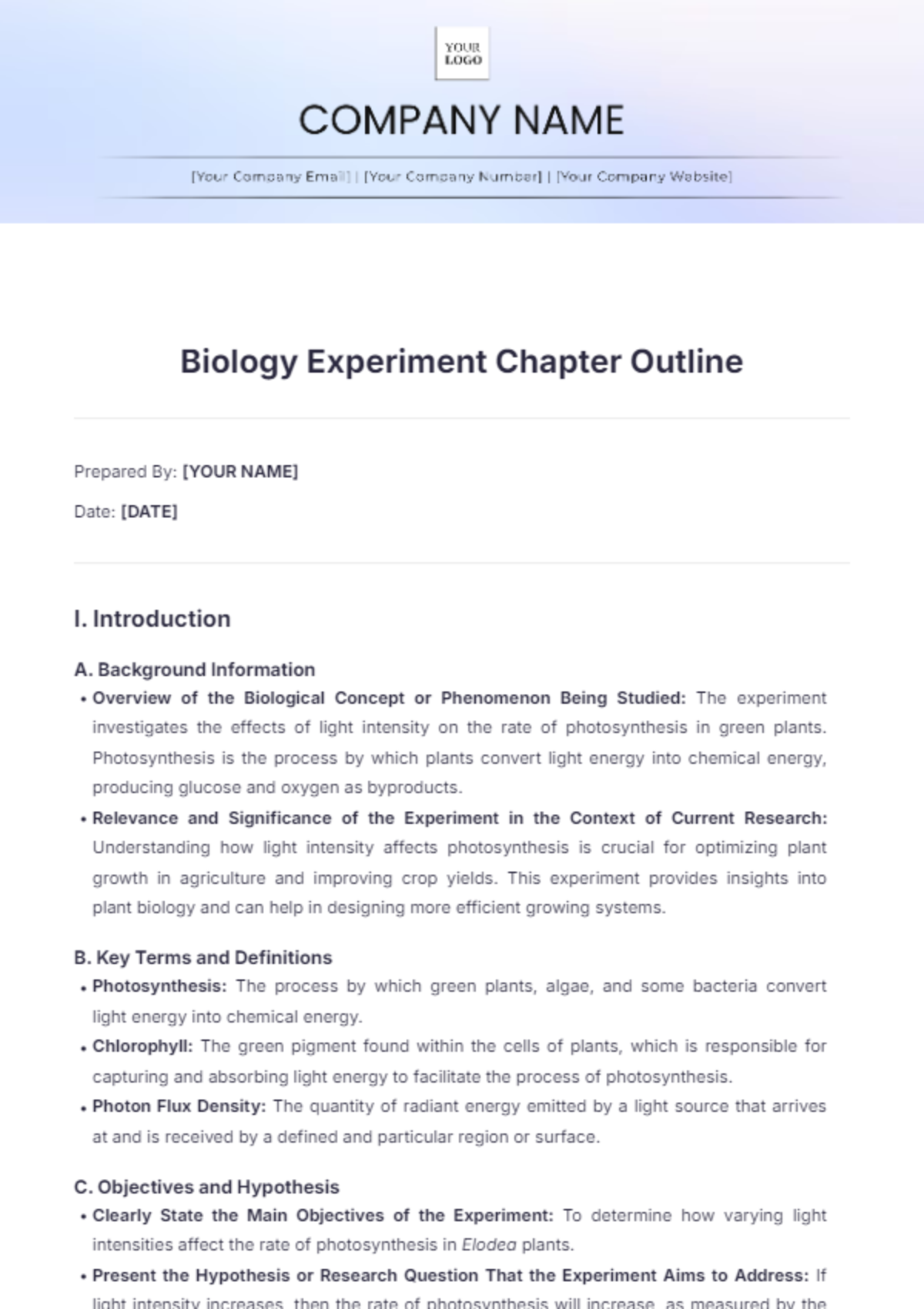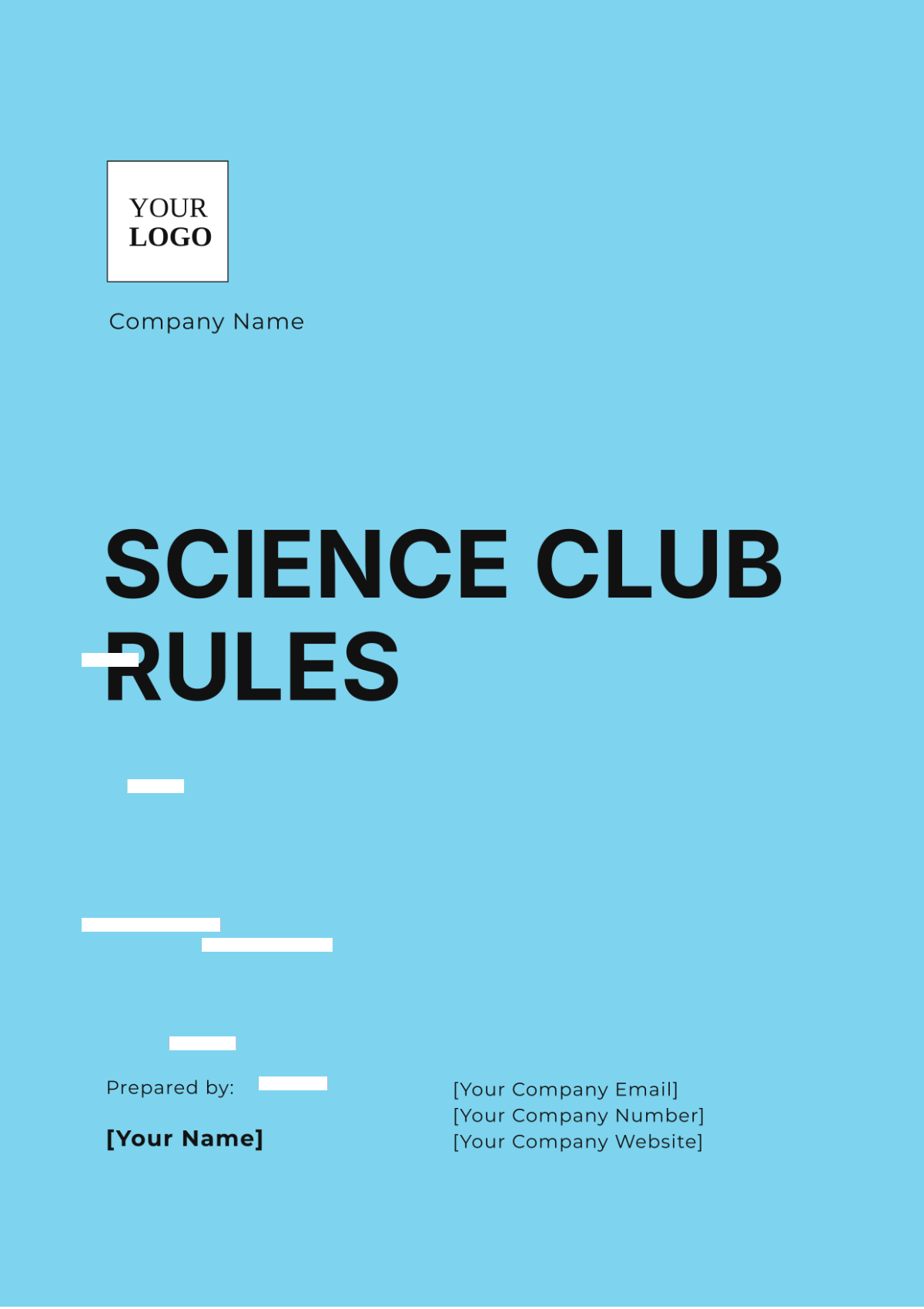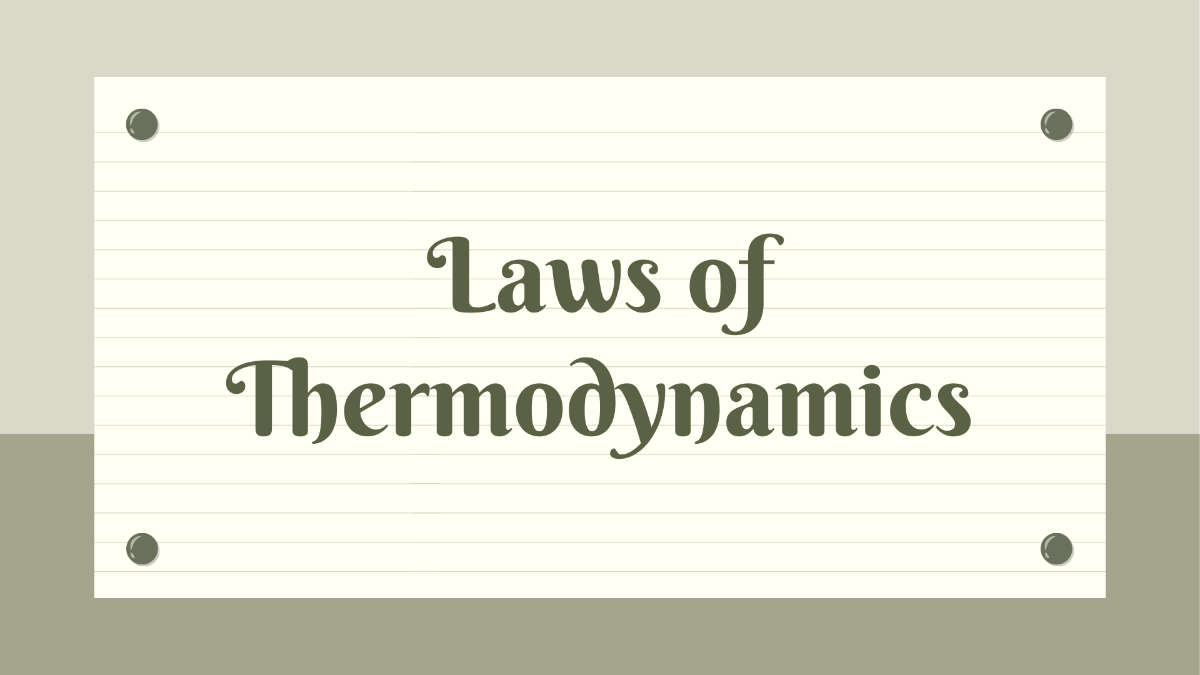Physicist Criteria
Prepared by: [Your Name]
Date: August 1, 2050
Introduction
This document outlines the criteria for evaluating physicists in various contexts, including research, teaching, and industry applications. The criteria aim to provide a comprehensive framework for assessing the qualifications, skills, and contributions of physicists.
Purpose
The purpose of these criteria is to establish a standardized evaluation process that enables institutions, employers, and professional organizations to assess physicists objectively. This will help in making informed decisions regarding hiring, promotions, funding, and collaborations.
Scope
These criteria apply to physicists across all levels of experience and in various roles, including academic researchers, educators, industry professionals, and policymakers. The evaluation will consider both qualitative and quantitative factors that reflect a physicist's expertise, contributions, and impact.
Criteria Table
Criteria | Short Description | Weight (%) | Score (1-5) | Comments |
|---|---|---|---|---|
Research Contribution | Impact and significance of published research | 30 | ||
Teaching Effectiveness | Quality of teaching and student engagement | 20 | ||
Collaboration Skills | Ability to work within teams and contribute to group goals | 15 | ||
Innovation | Development of new ideas, methods, or technologies | 15 | ||
Professional Development | Engagement in continuous learning and skill enhancement | 10 | ||
Community Engagement | Involvement in outreach, public speaking, or mentorship | 5 | ||
Professional Service | Contributions to professional organizations and committees | 5 |
Scoring System
1: Poor - Fails to meet expectations.
2: Fair - Meets some expectations, but lacks significant impact.
3: Good - Meets expectations adequately with some notable achievements.
4: Very Good - Exceeds expectations and demonstrates strong capabilities.
5: Excellent - Far exceeds expectations with outstanding contributions.
Evaluation Process
Self-Assessment: Physicists complete a self-assessment based on the criteria.
Peer Review: Colleagues and supervisors evaluate the physicist using the same criteria.
Scoring and Weighting: Scores are assigned for each criterion based on the scoring system, and weighted according to their importance.
Consolidation: Scores from self-assessment and peer reviews are consolidated to produce an overall evaluation score.
Feedback and Discussion: Results are discussed with the physicist to provide constructive feedback and identify areas for improvement.

